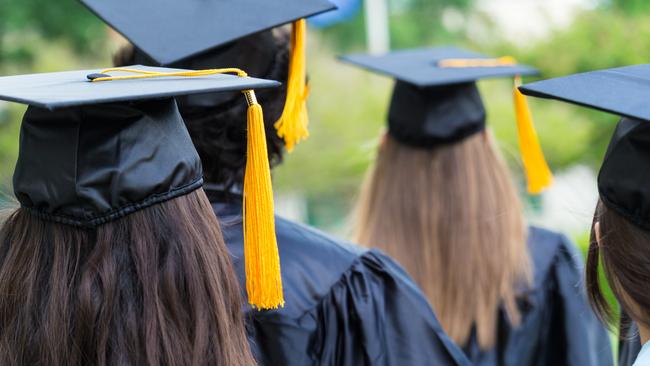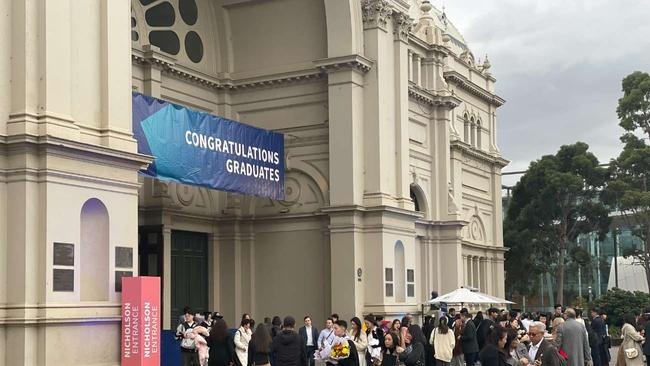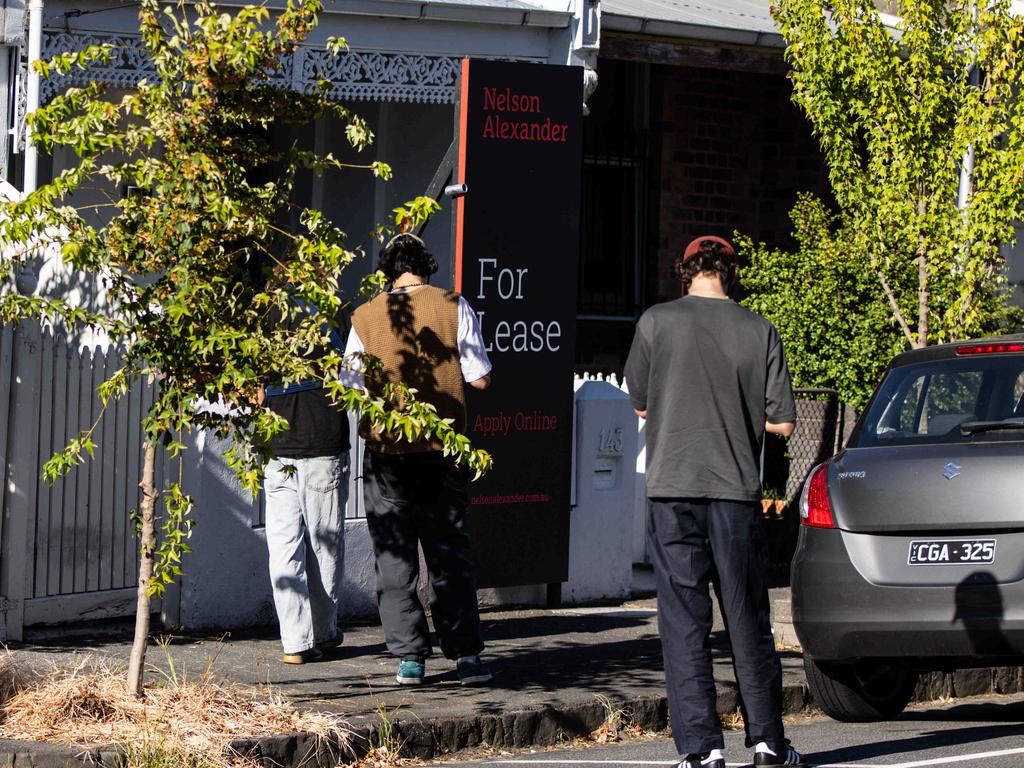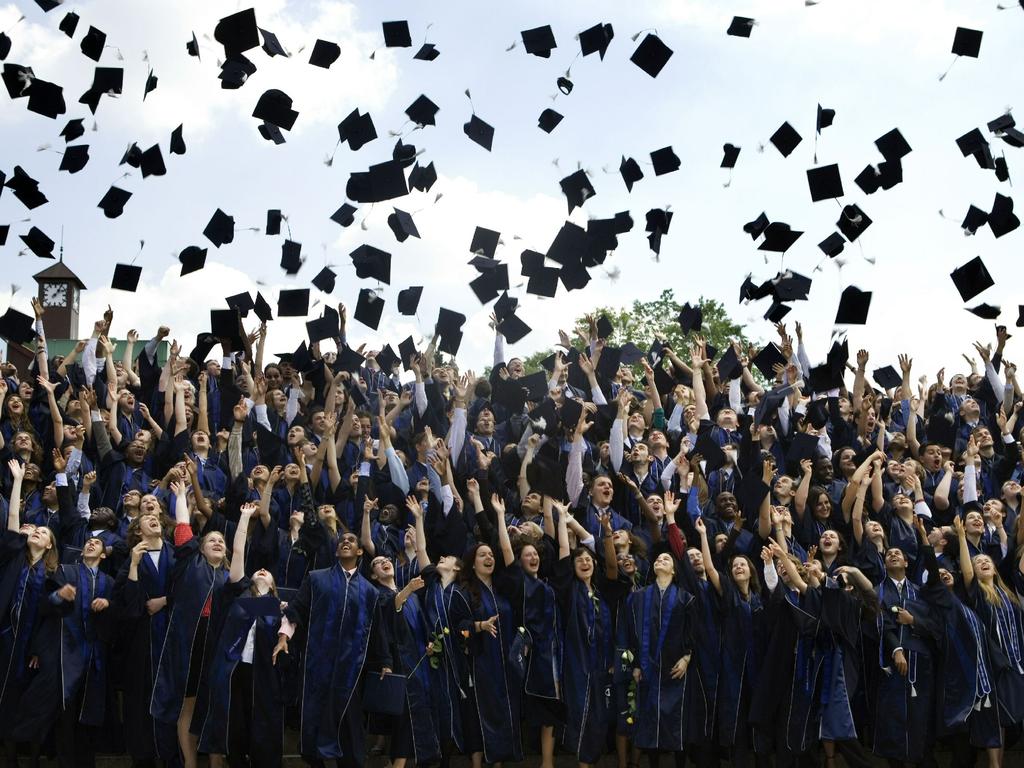Universities increase tuition fees for international students in 2025
Universities are hiking tuition fees for international students twice as fast as inflation to compensate for revenue shortfalls, with one institution charging students studying clinical medicine $112,832 next year.

Top universities will milk more money from international students next year despite enrolment caps, after increasing tuition fees twice as fast as inflation.
The University of Melbourne, University of NSW and University of Western Sydney will raise tuition fees for foreign students by 7 per cent in 2025.
An international student at Melbourne University will now have to pay $56,480 for one year of an engineering degree or $54,048 for one year of a commerce degree.
International students studying clinical medicine will be charged $112,832 next year, $7360 more than they paid this year.
The University of Melbourne estimates that the total course fee for a foreign student commencing a Bachelor of Commerce next year will range from $154,356 to $177,210.
A Bachelor of Science will cost an international student between $155,532 and $214,400.
The University of NSW will increase the cost of course units for international undergraduates by 7 per cent, from $1140 to $1220.
Based on the standard 48 units of credit for one year of a bachelor degree, international students will pay $58,560 for most courses next year, $3840 more than in 2024.
“The rise for 2025 covers the increasing cost of providing high-quality education such as library subscriptions, scientific equipment and other education costs, as well as changes in the Australian dollar,’’ a UniNSW spokeswoman said.
Western Sydney University will increase international student fees by 7 per cent for the 2025 intake.
“The university considers a number of factors when setting international student fees, including benchmarking with the rest of the sector, CPI and government policy,’’ a spokeswoman said.
The rise will boost the cost of a Bachelor of Arts degree to $30,952 for one year of tuition in 2025, with the annual fee for business degrees rising to $34,160, and information technology degrees costing $36,416 for tuition in 2025.

At the University of Sydney, a spokeswoman said fees will rise by 3 per cent or 4 per cent for all international students next year, in line with inflation.
The university will charge international students $57,700 for next year’s engineering coursework, and $53,600 for commerce or law.
At the Australian National University – which is slashing 650 jobs to cut more than $250m in costs – fees will rise by 5.8 per cent for international students next year.
The cheapest degrees will now cost between $44,670 and $59,750 in 2025, based on the field of study.
A foreign student studying medicine at ANU will be slugged $95,360 for tuition in 2025.
The fee hikes coincide with federal government plans to cap the number of international students at Australian universities to 270,000 new commencements next year.
In a new report, the Menzies Research Centre will reveal on Wednesday that one in three of all university students in Australia comes from overseas, with foreigners accounting for 79 per cent of enrolments in some courses.
At the Group of Eight research universities, foreigners made up 46 per cent of students who commenced studies in 2023.
“We analysed bachelor, postgraduate coursework and postgraduate research student data across 10 fields of study, and found that international students comprise over half of all students in at least one course level in seven fields,’’ the report states.
“Only in health, education, and society and culture did international student make up less than half of students in all course levels.
“International students make up a significant proportion of postgraduate coursework enrolments, reaching as high as 79 per cent in information technology courses, 74 per cent in engineering and related technologies, 66 per cent in creative arts and 65 per cent in management and commerce.’’
Domestic students, however, are flocking to degrees in health.
The Victorian Tertiary Admissions Centre revealed on Tuesday that applications for study in 2025 are already 8.7 per cent higher than this year.
It said 26.4 per cent of applicants listed a health course as their first preference.
“We continue to see strong interest in health courses following the pandemic, with society and culture, management and commerce, and the natural and physical sciences also making up a substantial proportion of applications,’’ VTAC chief executive Teresa Tjia said.
The Universities Admissions Centre in NSW said domestic applications had risen 2.7 per cent.
One in four applicants listed a health course as their first preference, with 20 per cent hoping to study society and culture.
Nearly one in 10 applicants chose engineering, and one in 20 chose teaching.







To join the conversation, please log in. Don't have an account? Register
Join the conversation, you are commenting as Logout